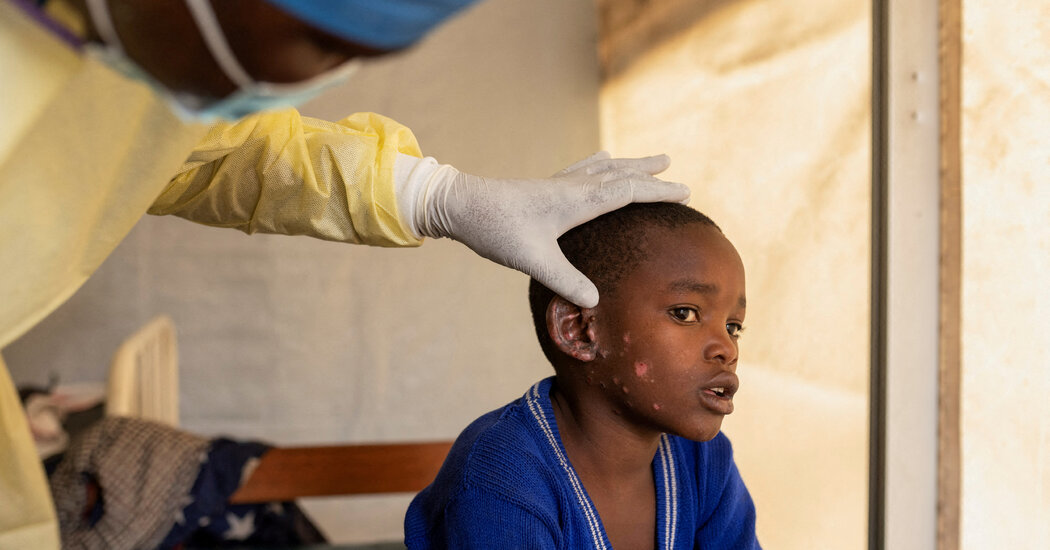The virus is evolving, and the newest version spreads more often through heterosexual populations. Sweden reported the first case outside Africa.
Faced once again with a rapidly spreading epidemic of mpox, the World Health Organization on Wednesday declared a global health emergency. The last time the W.H.O. made that call was in 2022, when the disease was still called monkeypox.
Ultimately the outbreak affected nearly 100,000 people worldwide, primarily gay and bisexual men, including more than 32,000 in the United States.
The W.H.O.’s decision this time was prompted by an escalating crisis of mpox concentrated in the Democratic Republic of Congo. It recently spread to a dozen other African countries. If it is not contained, the virus again may rampage all over the world, experts warned.
On Thursday, Sweden reported the first case of Clade 1 mpox outside Africa, in a person who had traveled to the continent. “Occasional imported cases like the current one may continue to occur,” the country’s public health agency warned.
“There’s a need for concerted effort by all stakeholders, not only in Africa, but everywhere else,” Dr. Dimie Ogoina, a Nigerian scientist and chair of the W.H.O.’s mpox emergency committee, said on Wednesday.
Congo alone has reported 15,600 mpox cases and 537 deaths, most of them among children under 15, indicating that the nature of the disease and its mode of spread may have changed.
